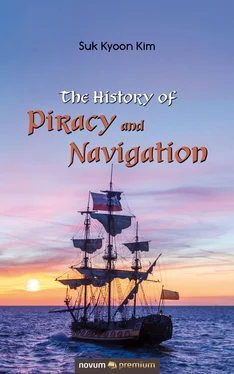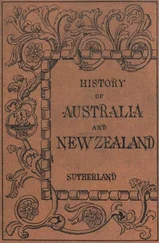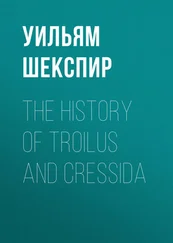First we need to get to know about his career, as well as his political rivalry with Caesar, to better understand his anti-pirate campaigns. Pompey, who formed a political alliance with Julius Caesar and Marcus Crassus, known as the First Triumvirate in the late Roman Republic, was one of the most powerful leaders. Pompey came from a noble and wealthy family, and he had engaged in many wars since he was very young. He achieved prominent success at the age of 18 during the Social War (91–88 B.C.) that the Roman Republic and several other cities in Italy had fought over Roman citizenship. His successes as a military commander helped him gain the nickname Magnus, (‘the Great’), leading him to attain consulship three times.
As a sign of political alliance with Caesar, Pompey married his daughter Julia. After she had died in childbirth, however, there was nothing to halt the two rivals’ contentious battle to become the first man in the Roman Republic. There is a maxim that even father and son may not share political power together. The two rivals, who had once been allies as well as family members, eventually engaged in fierce military campaigns against each other to see who would become the supreme leader of the Roman Republic. Apart from their political ambitions, both were supported by opposing groups of people in the Roman society. Pompey, hailing from a noble family, sided with other nobles and formed a political alliance with the conservative Senate. On the other hand, Caesar was supported by the common people.
When Caesar successfully concluded the Gallic Wars, the Senate – driven to an alliance with Pompey because it feared Caesar’s military power – ordered Caesar to step down from his military command and return to Rome. Finding himself with no other option but to cross the Rubicon River, Caesar marched on Rome, saying “the die is cast.” A civil war broke out between the two rivals. Faced with the swift maneuvering of Caesar’s troops, Pompey and many of the Senate fled to the south of Italy. Pompey’s troops retreated to Greece and were defeated at the Battle of Pharsalus in 48 B.C.
Pompey sought refuge in Egypt but was eventually assassinated there. Caesar’s victory in the civil war meant the transition from the Roman Republic to the Principate, making Caesar de facto emperor – essentially ‘dictator in perpetuity.’ This transition happened four years before Caesar was assassinated in 44 B.C. by a group of senators who opposed his populist reforms. Most importantly, they wanted to safeguard the Roman Republic, which had been the political system of Rome over several hundred years. After Caesar’s death, a series of civil wars broke out. Caesar’s adopted heir, Octavian, finally rose to become Augustus after he had defeated his political rivals in the civil wars, opening the era of the Roman Empire.
Pompey’s Anti-Pirate Campaigns
Pirates across the Mediterranean had been very problematic for the Roman Republic even before it rose to become the superpower of the region. However, the problem became more serious as the Cilician pirates engaged in the plundering of ships between Rome and Egypt, disrupting the transport of goods and communications, particularly grains from Egypt. At the time, the pirates were powerful enough to defeat the Roman naval force off Brundisium in southeast Italy in 86 B.C. Furthermore, the Cilician pirates were involved in the revolt of Spartacus (73–71 B.C.), a major slave and gladiator uprising against the Roman Republic, by supporting the rebels. As the survival of the Roman Republic itself was threatened, Romans were determined to launch a massive military campaign to root out the pirates completely.
In 67 B.C., the Senate decided to grant Pompey three years of imperium under the Anti-Piracy Law, which had been enacted in 101 B.C. He was given sweeping power to fight the pirates, which included the use of 6,000 talents, a fleet of 500 warships, 120,000 infantries and 5,000 cavalries. He was also given the power to tax and raise militias anywhere across the Roman territory within 50 miles landward from the sea. This might show how seriously Romans took the problem of pirates. Even in peacetime, Pompey was given much greater power than wartime commanders. At first, the conservative Senate strongly opposed giving imperium to the young and ambitious general. However, the Senate had no choice but to approve the bill of imperium because pirates were an urgent national issue.
Gnaeus Pompey Magnus
As the pirates disrupted shipping, low-class merchants and workers engaged in trade lost their jobs, and the common people greatly suffered from the soaring prices of their necessities. For this reason, the mere news of the Senate’s counter-piracy bill was enough to send prices down. The common people greatly supported the bill, and the Senate promptly passed the revised bill the following day. The swift enactment was made possible, in part, due to the support of Julius Caesar. An episode behind it will be described shortly.
Under the powerful imperium, Pompey completely eradicated the pirates off the Italian Peninsula in less than 40 days. Within three months, the pirates across the Mediterranean were broken and scattered, too. What made him so swiftly and effectively complete his mission? Apart from imperium, his strategy employed coordinated strikes between maritime and land forces, and that proved key to his amazing successes. Pompey divided the Mediterranean into 13 districts and placed each of them under the command of deputy commanders, called legates. While commanding a back-up squadron consisting of 60 warships, Pompey instructed the deputy commanders to blockade the pirates from going to the sea and to drive them to land. Then Pompey launched attacks from the coast of Spain eastwards. The pirates were forced to flee to the southern coast of Cilicia (the coast of modern Turkey), once known as the safe haven of pirates. The Roman troops attacked these Cilician pirate strongholds and bases with overwhelming force. The simultaneous attacks on land and at sea were extremely successful. The Roman troops destroyed no fewer than 500 pirate ships and 120 pirate bases, killing more than 10,000 pirates. Only a small number of pirates were able to flee from the attacks. Pompey treated surrendered pirates leniently, not crucifying them.
In the aftermath, the Mediterranean was cleared of pirates for the first time throughout history, and shipping was prosperous again. The Roman marketplaces were full of foods and grains from various regions across the Mediterranean, and the price of goods stabilized. The Mediterranean enjoyed peace and security free from the pirate threat for another four centuries until the collapse of the West Roman Empire. When Pompey returned to Rome in triumph, Romans cheered tremendously for his brilliant campaigns. Pompey became a national hero and this led him to his second consulship.
Julius Caesar and Pirates
Young Caesar worked as a lawyer as well as a prosecutor. Caesar was engaged in the impeachment of a key aide to Sulla (138–78 B.C.), a general as well as politician who had risen to consulship twice and ruled Rome under a dictatorship. Caesar failed to impeach him and consequently he became a target of the Sulla faction. The young Caesar, at the age of 24, opted to go abroad to save himself from the threat. His choice was Rhodes, a Greek island off the Anatolian coast of Asia Minor (modern Turkey), which was an intellectual capital alongside Athens.
Rhodes at the time was the hub of trade as well. Its wealth and power might be well demonstrated by the Colossus of Rhodes, a gigantic statue erected in commemoration of victory over a battle with Macedonia in 290 B.C. The statue, whose height was up to 34 meters (equivalent of the Statue of Liberty from the feet to the crown), collapsed during the earthquake of 226 B.C. and was taken apart by Saracens who invaded the island in 653. Rhodes also held a significant position in terms of the evolution of the law of the sea. Rhodes was the center in the evolution of the law of the sea, particularly in terms of settling maritime and trade disputes. The early customary law of the sea is called the ‘Rhodesian Sea Law.’ The principle of freedom of navigation today was established through the Rhodesian Sea Law.
Читать дальше












